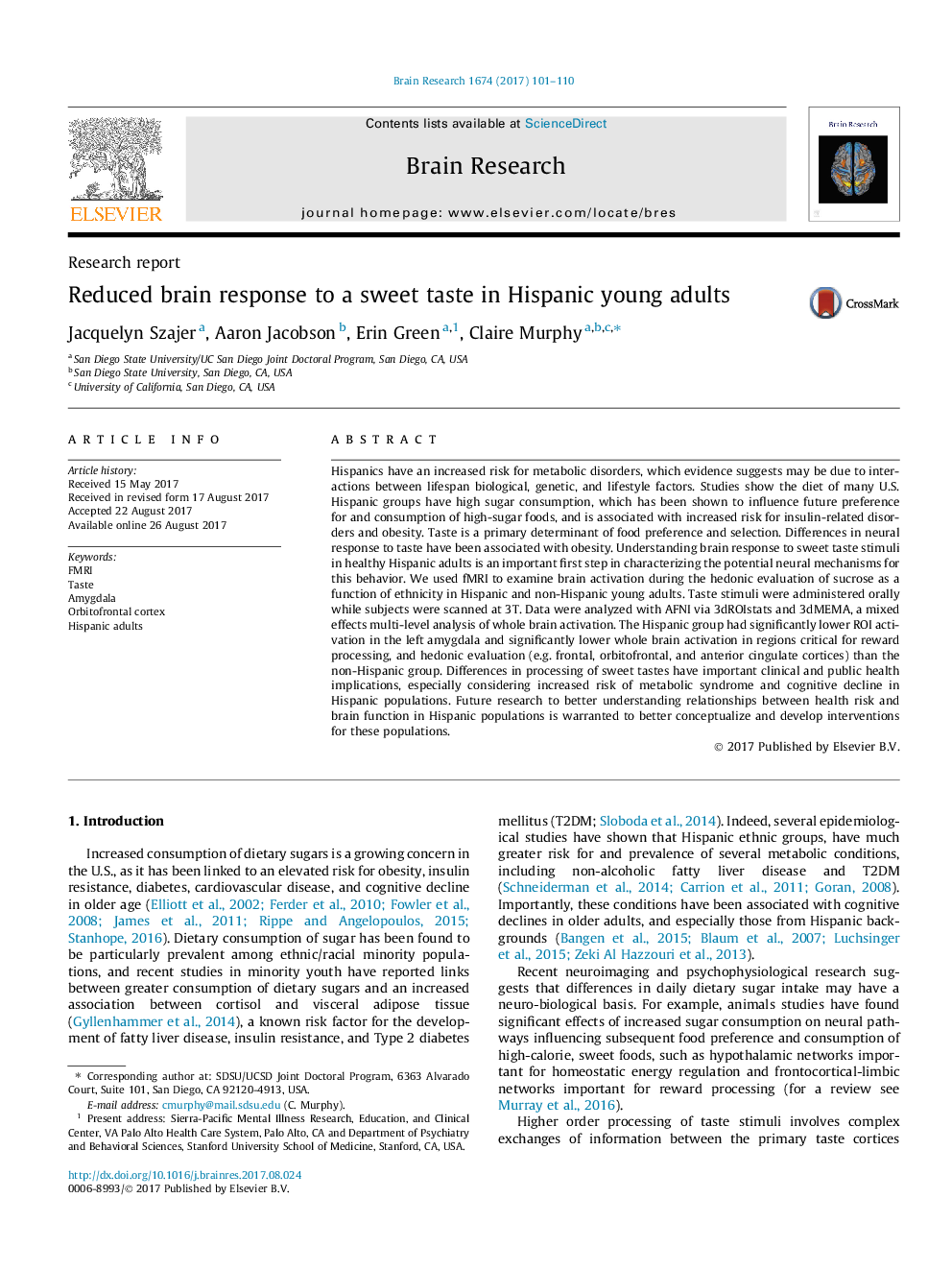| کد مقاله | کد نشریه | سال انتشار | مقاله انگلیسی | نسخه تمام متن |
|---|---|---|---|---|
| 5736481 | 1613771 | 2017 | 10 صفحه PDF | دانلود رایگان |
عنوان انگلیسی مقاله ISI
Reduced brain response to a sweet taste in Hispanic young adults
ترجمه فارسی عنوان
کاهش پاسخ مغز به طعم شیرین در جوانان اسپانیایی تبار
دانلود مقاله + سفارش ترجمه
دانلود مقاله ISI انگلیسی
رایگان برای ایرانیان
کلمات کلیدی
موضوعات مرتبط
علوم زیستی و بیوفناوری
علم عصب شناسی
علوم اعصاب (عمومی)
چکیده انگلیسی
Hispanics have an increased risk for metabolic disorders, which evidence suggests may be due to interactions between lifespan biological, genetic, and lifestyle factors. Studies show the diet of many U.S. Hispanic groups have high sugar consumption, which has been shown to influence future preference for and consumption of high-sugar foods, and is associated with increased risk for insulin-related disorders and obesity. Taste is a primary determinant of food preference and selection. Differences in neural response to taste have been associated with obesity. Understanding brain response to sweet taste stimuli in healthy Hispanic adults is an important first step in characterizing the potential neural mechanisms for this behavior. We used fMRI to examine brain activation during the hedonic evaluation of sucrose as a function of ethnicity in Hispanic and non-Hispanic young adults. Taste stimuli were administered orally while subjects were scanned at 3T. Data were analyzed with AFNI via 3dROIstats and 3dMEMA, a mixed effects multi-level analysis of whole brain activation. The Hispanic group had significantly lower ROI activation in the left amygdala and significantly lower whole brain activation in regions critical for reward processing, and hedonic evaluation (e.g. frontal, orbitofrontal, and anterior cingulate cortices) than the non-Hispanic group. Differences in processing of sweet tastes have important clinical and public health implications, especially considering increased risk of metabolic syndrome and cognitive decline in Hispanic populations. Future research to better understanding relationships between health risk and brain function in Hispanic populations is warranted to better conceptualize and develop interventions for these populations.
ناشر
Database: Elsevier - ScienceDirect (ساینس دایرکت)
Journal: Brain Research - Volume 1674, 1 November 2017, Pages 101-110
Journal: Brain Research - Volume 1674, 1 November 2017, Pages 101-110
نویسندگان
Jacquelyn Szajer, Aaron Jacobson, Erin Green, Claire Murphy,
